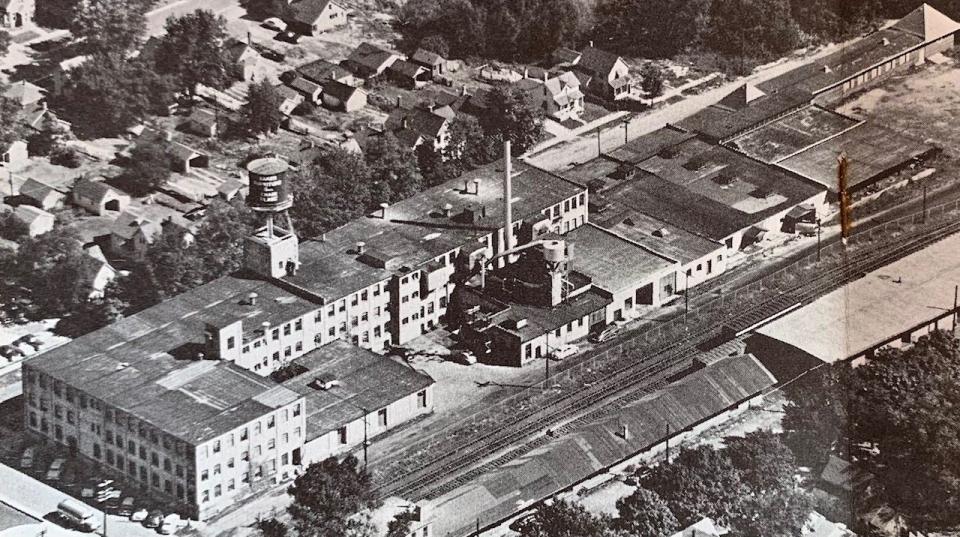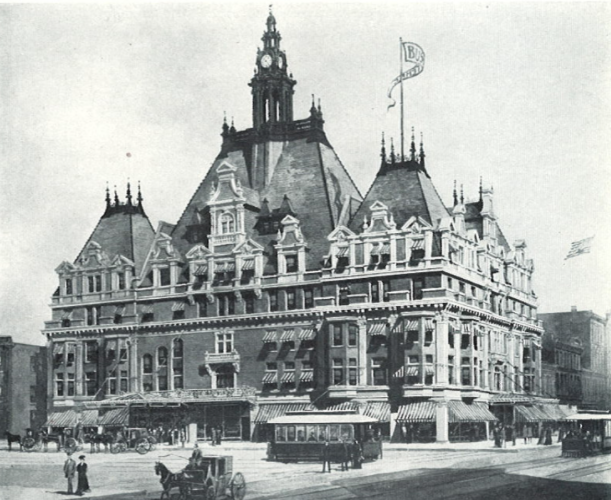Steve VanderVeen: The eclectic history of Holland's Baker Lofts
The building that houses Baker Lofts has seen a lot of Holland business history.
Walter Lane was born in England in 1868. He emigrated to Toronto, Canada, at 16, where he worked for Heintzman and Company.
More History: The many hats of former mayor William Beach
More History: The foresight of the Walshes and Brooks
More History: The innovation of Engbertus VanderVeen
In 1891, he joined William Bush, Sr. and William Bush, Jr. in Chicago to form the Victor Piano and Organ Company. In their factory near 49th Street and Lake Street, Lane designed not only pianos, but also the machinery to make them.

In 1901, the founders renamed their company Bush and Lane Piano Co.
In 1905, they moved their operation and 60 employees — many of them Scandinavian immigrants — to Holland. Their new factory had the latest technology, including a steam engine they saw exhibited at the St. Louis World's Fair in 1904.
That steam engine can still be seen on a pedestal on the corner of Waverly Road and 32nd Street in Holland.
In 1906, William Beach and friends acquired interests in the business. Beach became general manager and treasurer, then vice president, while his son, Chester, served as secretary of the board.
In 1912, Bush and Lane was the largest manufacturer in Holland. Two hundred craftsmen worked at the two-story plant on 24th Street and Lincoln Avenue, making upright, baby grand and player pianos — the latter becoming so popular that, in 1919, Bush and Lane added a four-story addition to its factory.
Employment grew to 350 men. Meanwhile, Walter Lane built a mansion at 659 State St. — later owned by Ernest Brooks and eventually razed to make room for First Presbyterian Church.

Unfortunately, the radio began to replace the piano in the 1920s. Instead of singing around the piano, families would listen to music, news broadcasts, comedies, dramas and sporting events around a radio.
By the time Walter Lane passed away in 1928, his company was in trouble. Chester Beach, then president, tried to diversify into bedroom suites and phonograph and radio cabinets. He also hired Abe Stephen, who had successfully managed Holland Furniture Company.
Despite a large capital infusion from Arthur Morris of Detroit, who wanted Bush and Lane to return to piano making, the company closed in 1930. Once again, William Beach found a way to utilize Holland’s skilled craftsmen.
Siebe Baker
Siebe Baker emigrated from The Netherlands in 1870 to Hamilton, Michigan. His son, Hollis, was born in 1888. In 1890, after working as a store clerk and builder, Siebe moved to Allegan and launched Cook and Baker, a water-powered planing mill that made doors and sashes.
In 1893, Cook and Baker built an oak desk and bookshelf combination that proved commercially successful. In 1903, Siebe renamed the business Baker and Co.
After graduating from the University of Michigan in 1910, Hollis joined his father’s business as a salesman, becoming president in 1925. After Siebe died in 1927, Hollis renamed the company Baker Furniture Factories.
In 1929, Peck and Hills, a national furniture wholesaler, purchased the company, and Hollis started over. In 1933, Beach helped convince Hollis to move his company to Holland on 24th Street.
Subscribe: Learn more about our latest subscription offers!
In 1934, Hollis bought back the assets of Baker Furniture Factories from Peck and Hills, which had gone bankrupt.
Over the years, Baker Furniture gained a reputation for its high-end British, Colonial, Federal, Modern, Neo-Classical Italian, Danish, and Far East furniture. One of its big sellers was the Chippendale Chair.
As sales grew, Baker purchased the vacant Charles Limbert factory on Sixth Street and Columbia Avenue for chair and upholstery manufacturing. He also purchased the factory at 16th Street and Van Raalte Avenue, but kept his cabinet line at the plant on 24th Street.

In 1957, Baker purchased the Grand Rapids Chair Company, plus three other manufacturers. Hollis Baker died in 1966.
The business then changed hands three times: Magnavox purchased it in 1969, Knapp and Tubbs in 1972 and the Kohler Company in 1986.
The plant on Sixth was razed in 1990 for Freedom Village. The plant on 16th became home to Vanderbilt Academy. In 2005, Scott Bosgraaf purchased the 24th Street property, renovated it and reopened it as Baker Lofts.
Information for this article comes from Robert Swierenga's "Holland, Michigan," antiquepianoshop.com, hollandmvp.files.wordpress.com, NPR and grpmcollections.org.
— Community Columnist Steve VanderVeen is a resident of Holland. Contact him through start-upacademeinc.com.
This article originally appeared on The Holland Sentinel: Holland History: The eclectic story of Holland's Baker Lofts
